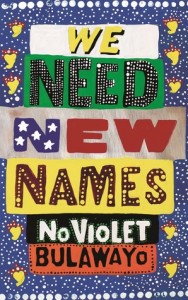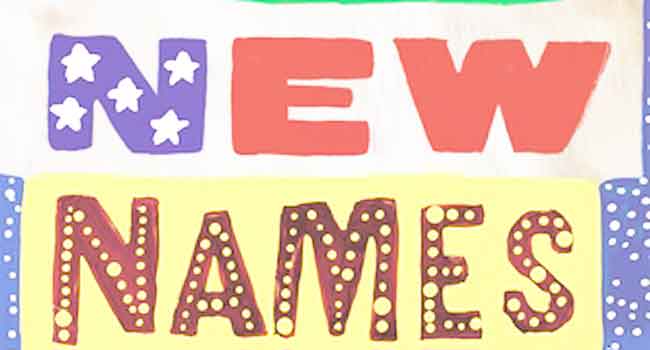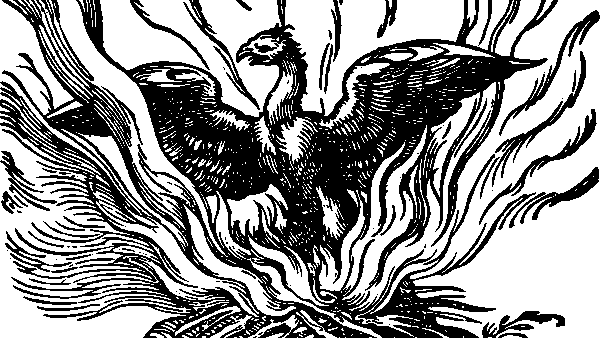 This is a book of two halves. The first half is set in an unnamed African country that bears more than a passing resemblance to Zimbabwe, and the second half is set in the USA.
This is a book of two halves. The first half is set in an unnamed African country that bears more than a passing resemblance to Zimbabwe, and the second half is set in the USA.
Narrating both halves is Darling, a ten-year-old child in the first half and a teenager in the second. Her voice is compelling and beautifully written throughout, and I think it’s Darling’s voice that was the main reason for the novel’s Booker shortlisting.
Here is Darling, for example, describing her Aunt Fostalina’s struggles with the English language as she tries to order a push-up bra over the phone:
The problem with English is this: You usually can’t open your mouth and it comes out just like that – first you have to think what you want to say. Then you have to find the words. Then you have to carefully arrange those words in your head. Then you have to say the words quietly to yourself, to make sure you got them okay. And finally, the last step, which is to say the words out loud and have them sound just right. But then because you have to do all this, when you get to the final step, something strange has happened to you and you speak the way a drunk walks. And because you are speaking like falling, it’s as if you are an idiot, when the truth is that it’s the language and the whole process that’s messed up. And then the problem with those who speak only English is this: they don’t know how to listen; they are busy looking at your falling instead of paying attention to what you are saying.
There are other wonderful pieces of prose, like describing parked cars “surrounding the little ballpark like teeth”, and “If these walls could talk, the buildings would stutter, wouldn’t remember their names.” The language always feels fresh, the voice strong.
The novel also gives a great insight into life in a country that is unravelling, and the experience of moving to America and having people refer to Africa as a single country with a single, unchanging reality.
My favourite chapter was one narrated by an insane old man in a nursing home. I’d love to quote it in full, but instead I’ll just recommend that you read it. It’s a searing account of life in Zimbabwe and the compromises and sacrifices and sometimes heartbreak involved in migrating to America.
What stops me from recommending this book whole-heartedly is the meandering plot. The trajectory is “Darling runs around stealing guavas with her friends as her country falls apart; Darling moves to the US and becomes partly but not wholly American, not fitting in with Americans but struggling to connect with her friends back home too.” Beyond that, there’s not much of a shape to it, and the ending felt completely flat.
As I look back over the novel, I think I see why it was that way. The point, I assume, is that emigration is not the happy ending that Darling had naively imagined while sitting at home in Zimbabwe. She is stuck, just as her aunt and uncle are stuck, just as her country is stuck. The American dream is inaccessible to them, but their homeland offers nothing. So the lack of an ending is true to life – there is no grand denouement. Life just goes on.
Still, as a reader I found it frustrating. I expected the characters to change in some way, beyond the familiar story of immigration and the struggle for identity. I kept reading for the voice, for the sometimes funny sometimes angry sometimes heartbreaking descriptions, but the lack of plot or character development was disappointing. I can see why the book got so much praise, and I can see that Bulawayo is a talented writer, and I think the book is certainly worth reading, but I wouldn’t urge you to rush out and buy it right now. I’d add it to the “TBR some day” pile 😉




There are 4 comments
Wonderful review, Andrew. Sorry to know about the lack of plot and character development in the book. But glad to know that the voice of the narrator is authentic and wonderful. I loved that passage you have quoted on speaking in English. I also remember reading a passage on guava trees which I liked very much. Hope Bulawayo is able to create depth in plot and characters in her next work.
Hi Vishy
Yes, there were some wonderful passages. Funnily enough, this is one of those books that I felt really frustrated with when I finished, but has grown on me since. Now I’m wondering if my review was too harsh! That happens sometimes…
An honest review! I can deal with lack of plot if the characters are well developed and vice versa. But I can’t deal when both elements are lacking unless the language is so beautiful that I have to just continue reading. I read her Caine Prize wining story which I didn’t like so I confess that I’m not in a hurry to read this book. Perhaps, next year.
I feel the same, Kinna. The language was pretty beautiful, so I did keep reading, but was a bit disappointed in the end. Maybe it’s also because the book received so much praise and attention, and so my expectations were very high.